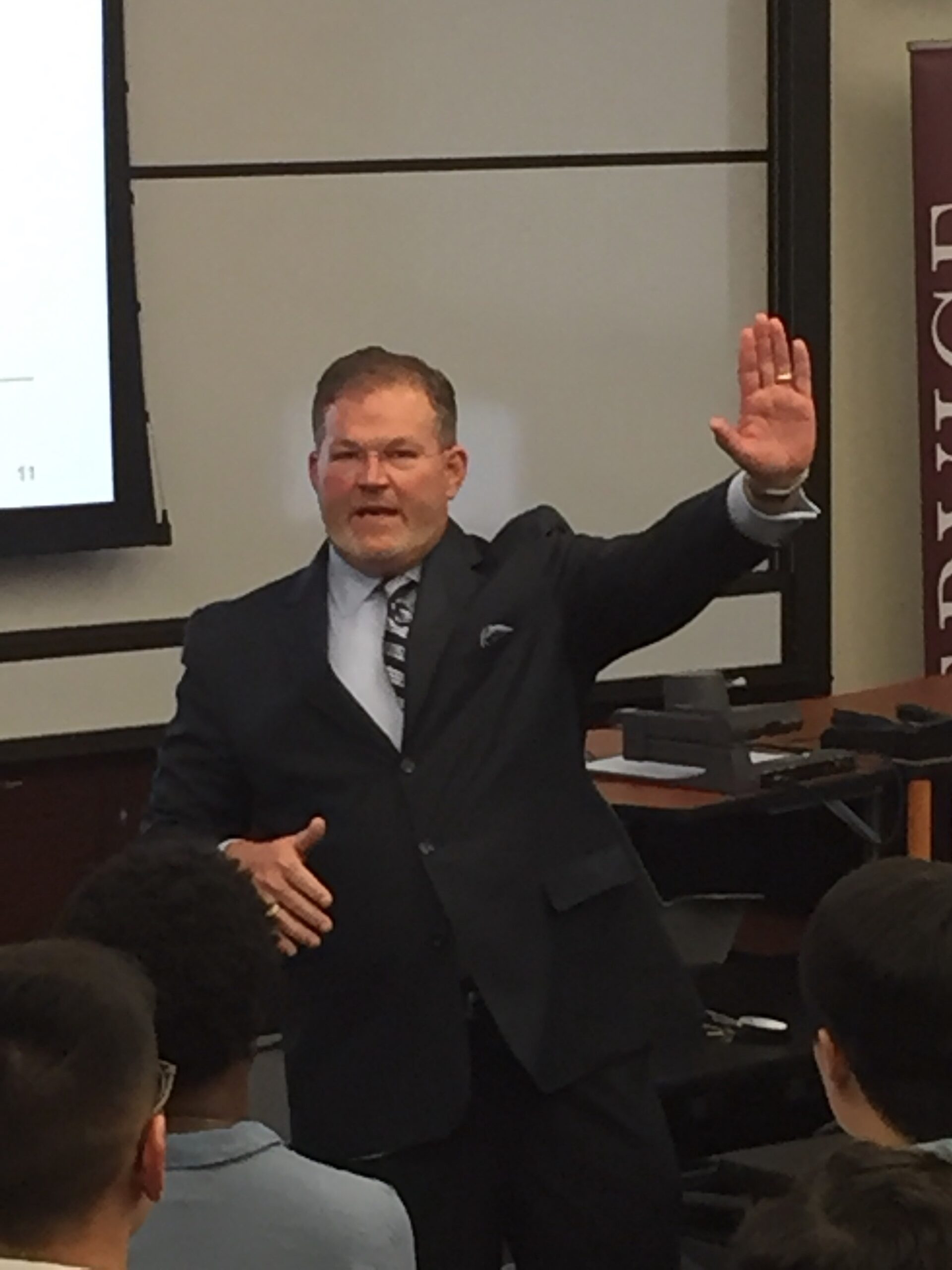Quality healthcare requires personal touch, says Optum executive vice president
March 3, 2017
|
Mays Business School
Healthcare customers are a unique type of consumer – reluctant to purchase, at risk and often highly stressed. During a visit with business students in the Improving Service Quality in Healthcare course, J.R. Thomas, executive vice president of Optum, shared some of the complicated challenges healthcare providers face today.
The visit was the second day of a trip to Mays for Thomas and Optum senior executives Doug Hansen ’89, Allison Miller ’99 and Kevin Kuhn. The first day, Thomas presented to Business Honors students in the Executive Speaker Series, followed by a networking session and student dinner sponsored by Optum. The second day Thomas and his team members from Optum spoke with MBA students and to students from the School of Public Health.
 Leonard Berry, University Distinguished Professor of Marketing, taught the lecture for the Improving Service Quality in Healthcare course discussion and facilitated discussion between students and their visitors. The focus on Healthcare is one of Mays’ Grand Challenges.
Leonard Berry, University Distinguished Professor of Marketing, taught the lecture for the Improving Service Quality in Healthcare course discussion and facilitated discussion between students and their visitors. The focus on Healthcare is one of Mays’ Grand Challenges.
Managing stress
In the discussion, Thomas underscored one of the most important issues facing healthcare providers: stress. “Patients and their families are faced with life-altering decisions, nurses and doctors work long hours and endure emotional exhaustion to provide the best service possible, and management is stressed with striking a balance between good will toward those who can’t afford expensive healthcare and staying in business,” he said.
The key, he said, is to remember that patients are more than customers; they’re people. He provided an example of an end-of life scenario: “If a patient is dying, it’s important to personally talk to the family. Give them your instinct. You can’t always prevent death, but you can control how it will happen.”
He elaborated on another complex situation: “Some customers can’t always afford healthcare. But remember you also owe it to patients to stay in business.”
Technology creates new challenges, opportunities
Thomas also shared how technology is changing the landscape of medicine. “Routine visits and checkups for common maladies are moving towards telemedicine, such as simple phone calls instead of expensive in-office visits,” he said. “But for the more serious cases, the value of a personal touch in an in-person visit will never go away. Patients need that.”
Marketing senior Rachel Claggett said she was impressed by the amount of involvement the business side of healthcare has in the lives of patients. “It’s reassuring to know that there is humanity and passion in this industry – it’s not just about profits.”
Thomas received his master’s of business administration focusing on finance and management at the University of Texas at Austin. He also holds a bachelor’s degree in zoology from the University of Arkansas.



